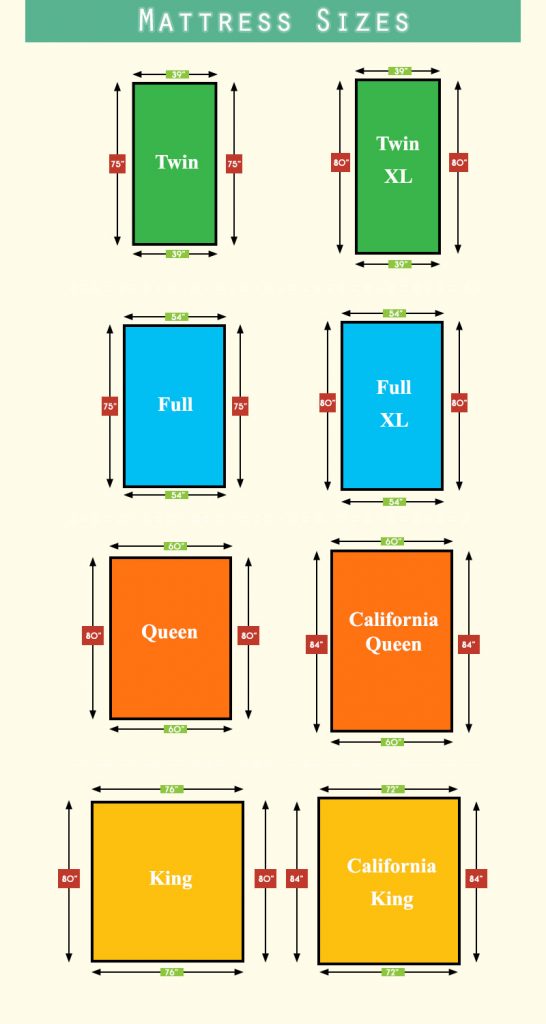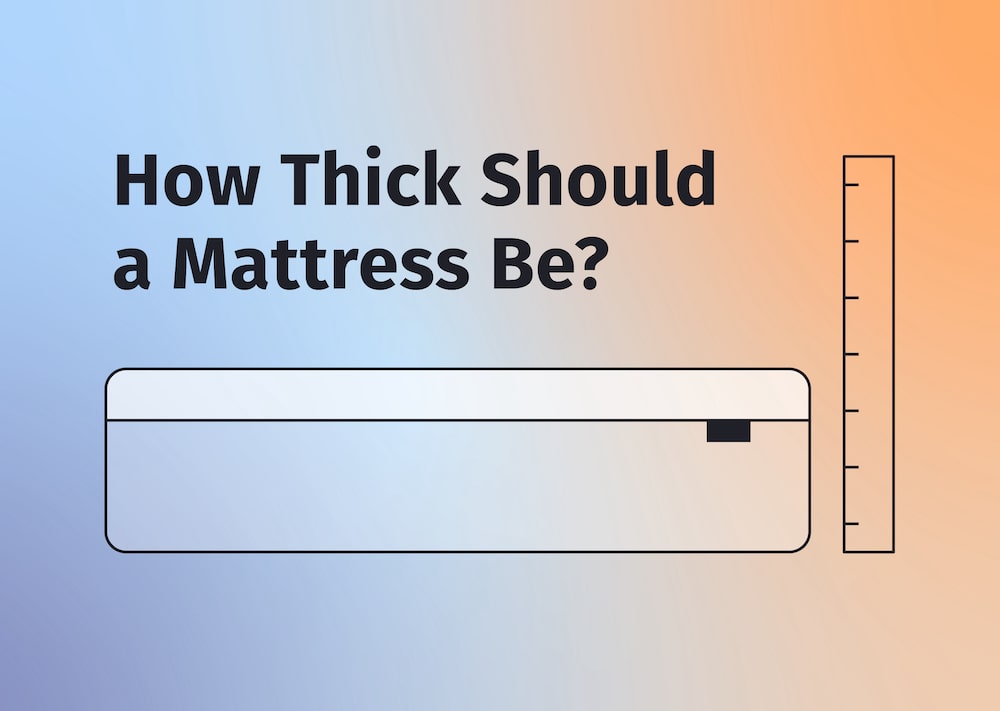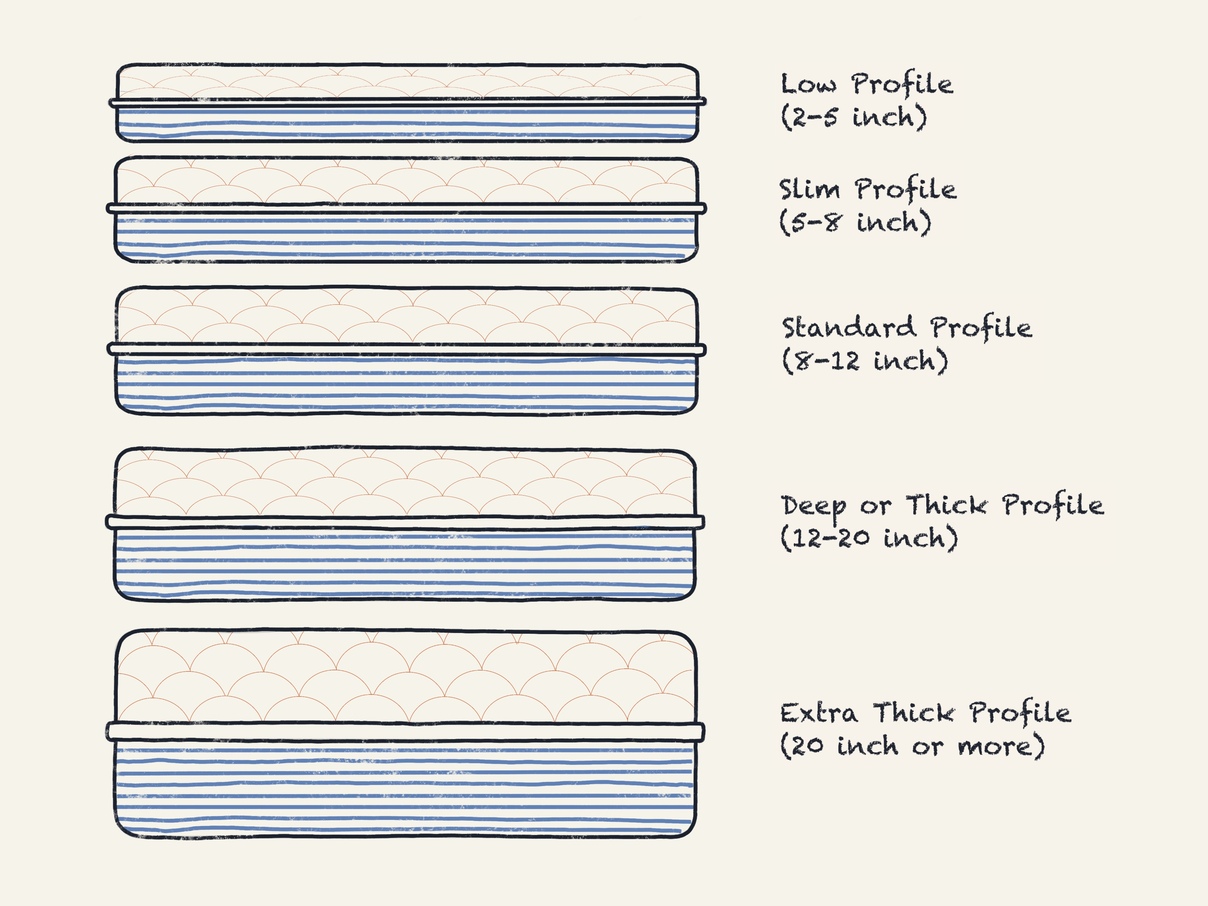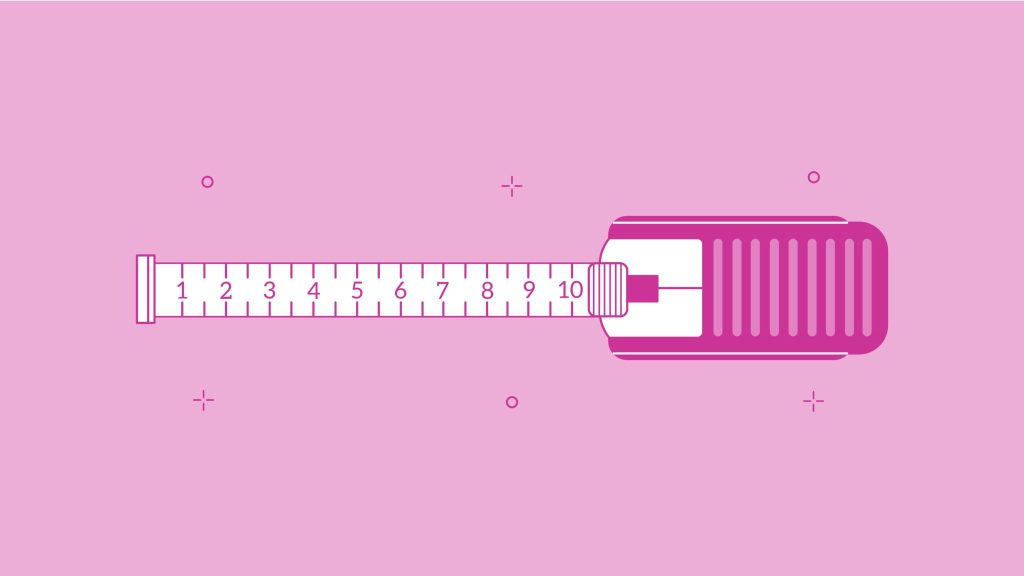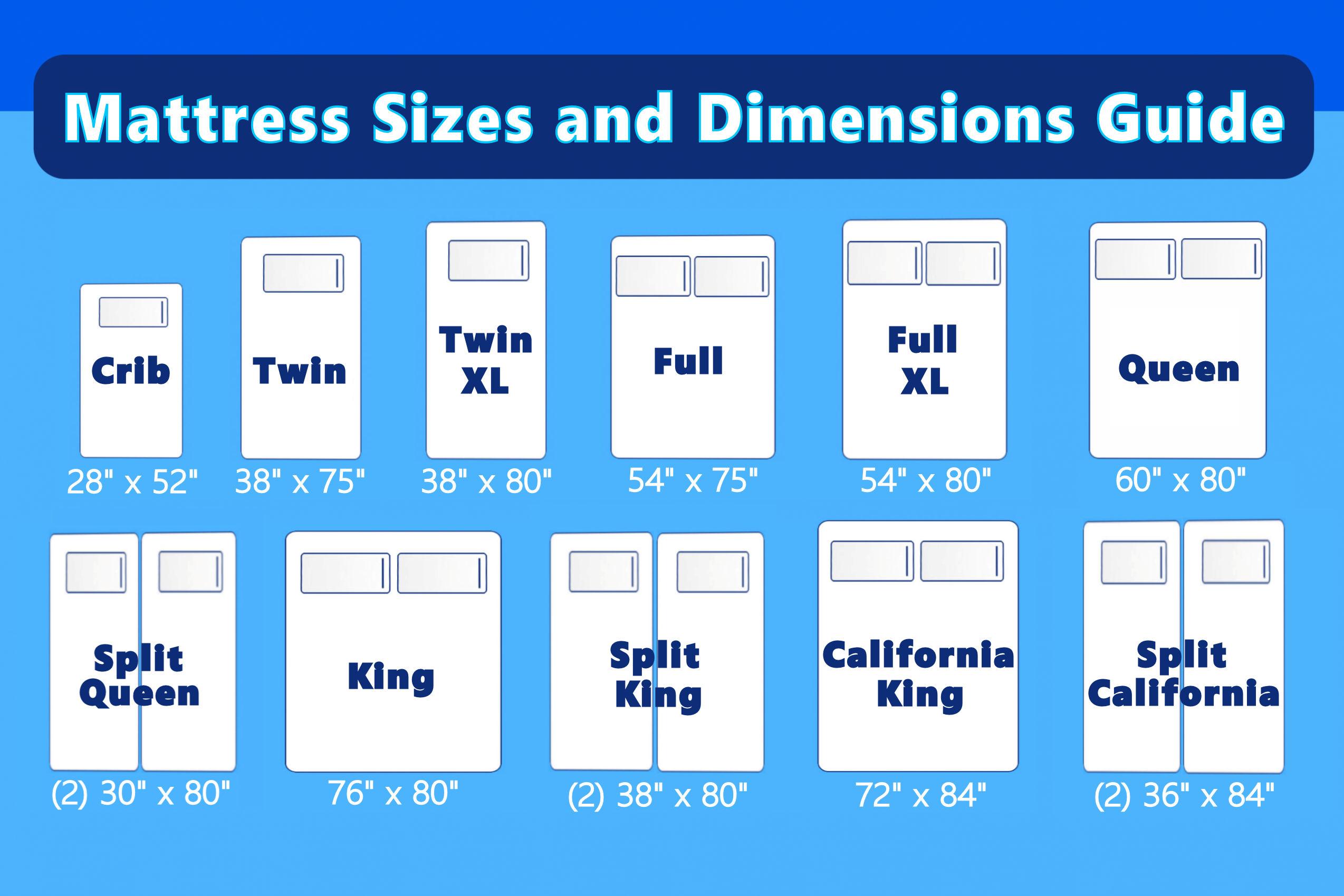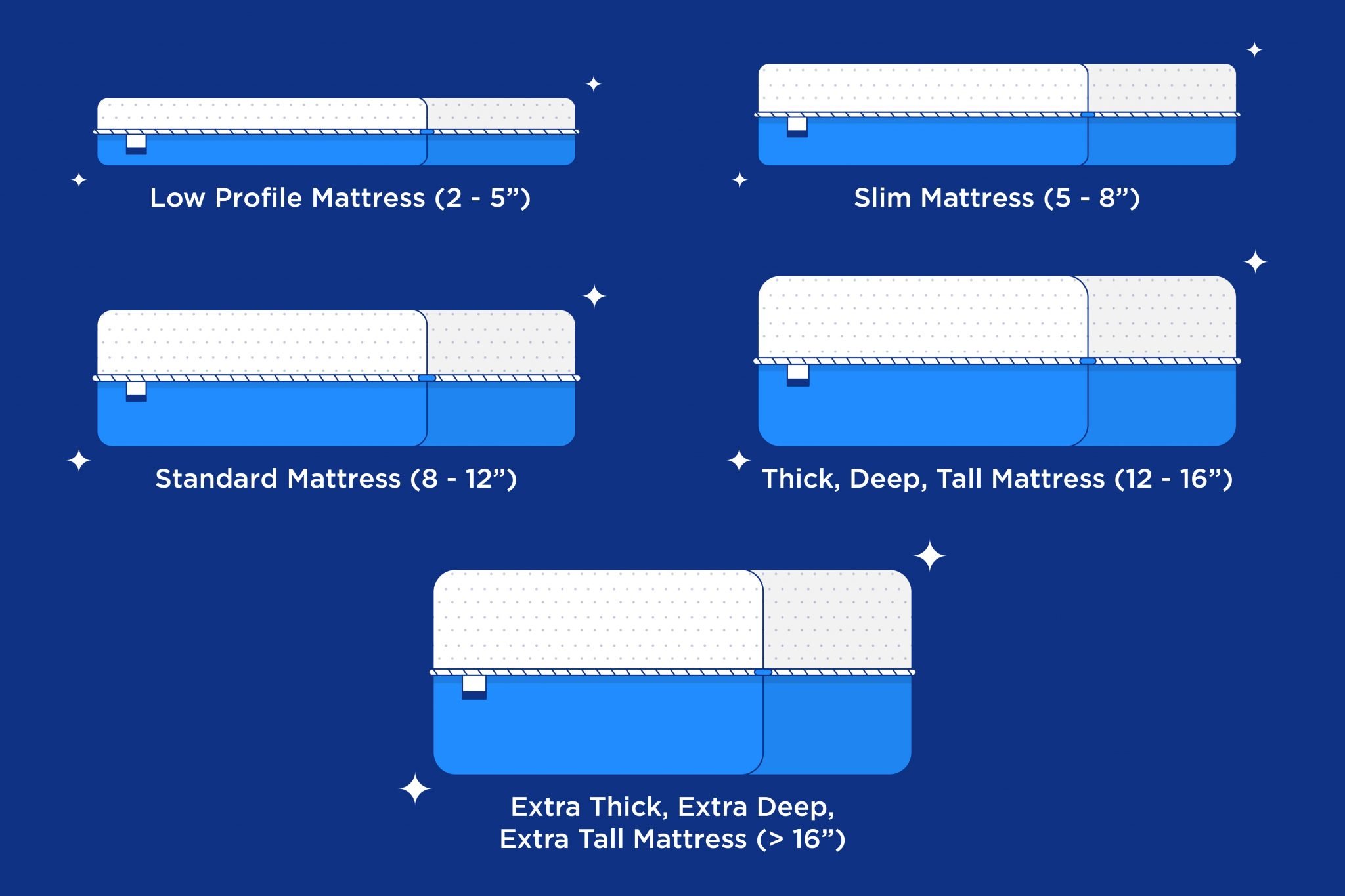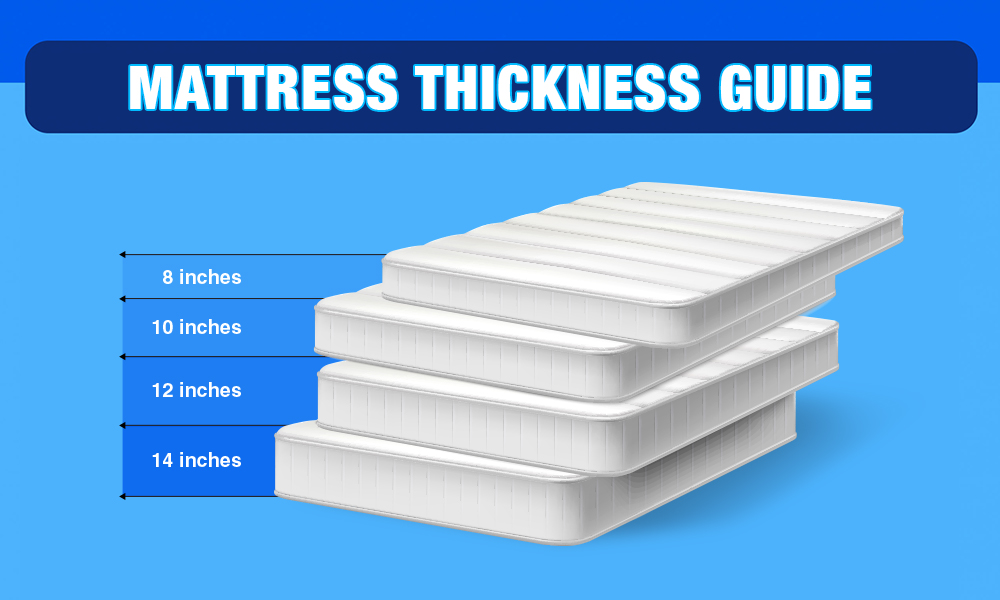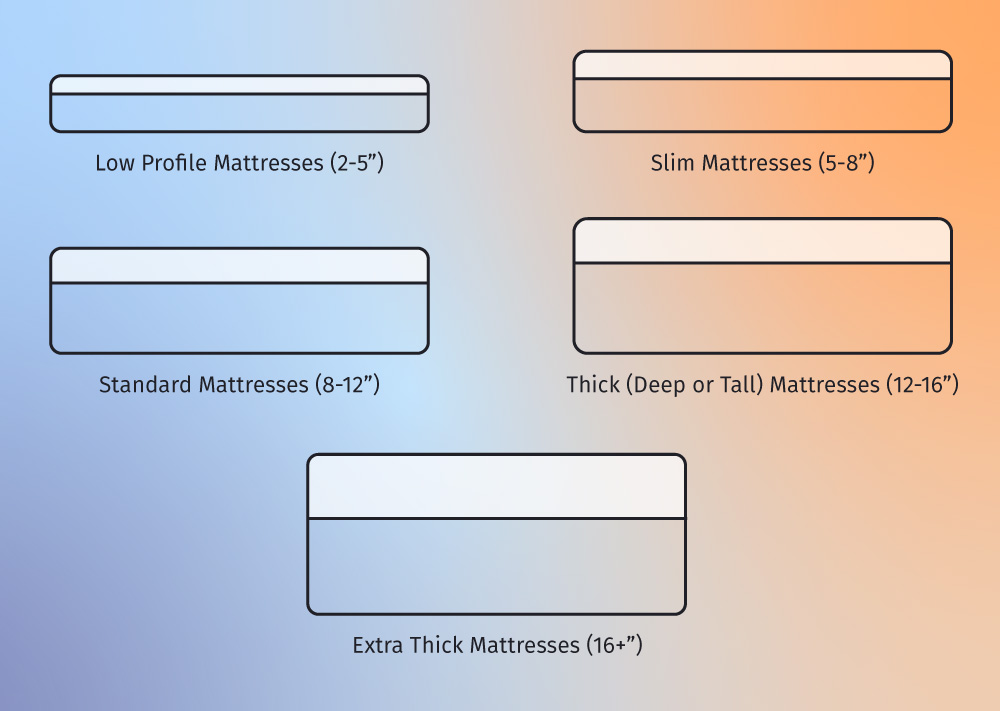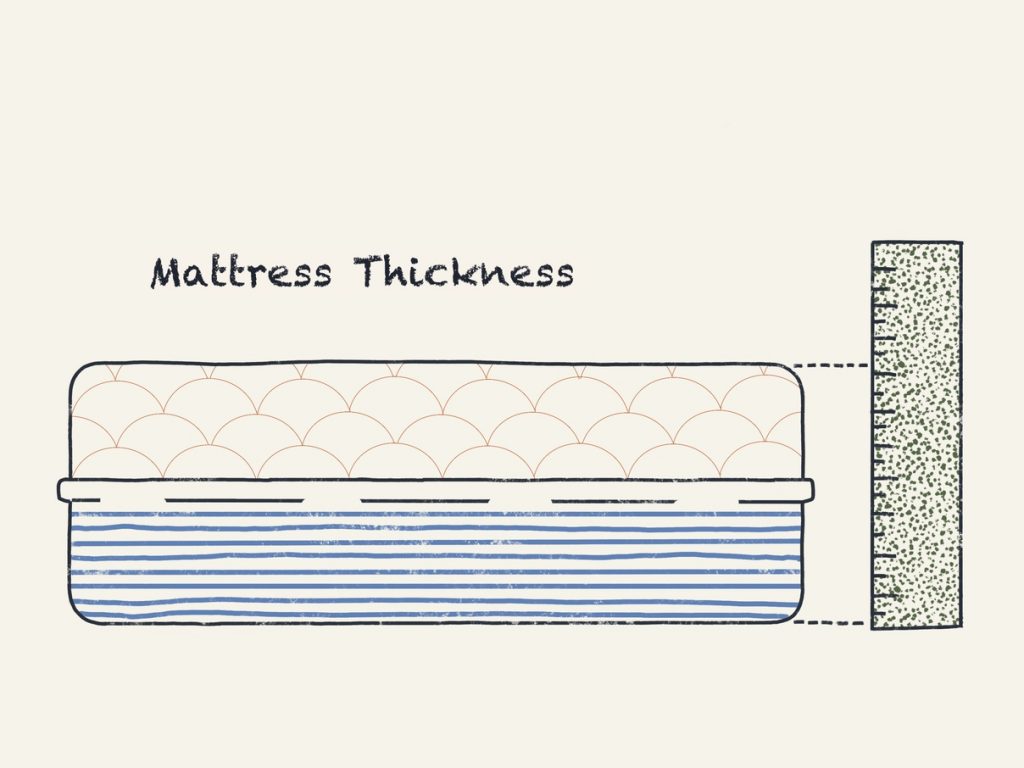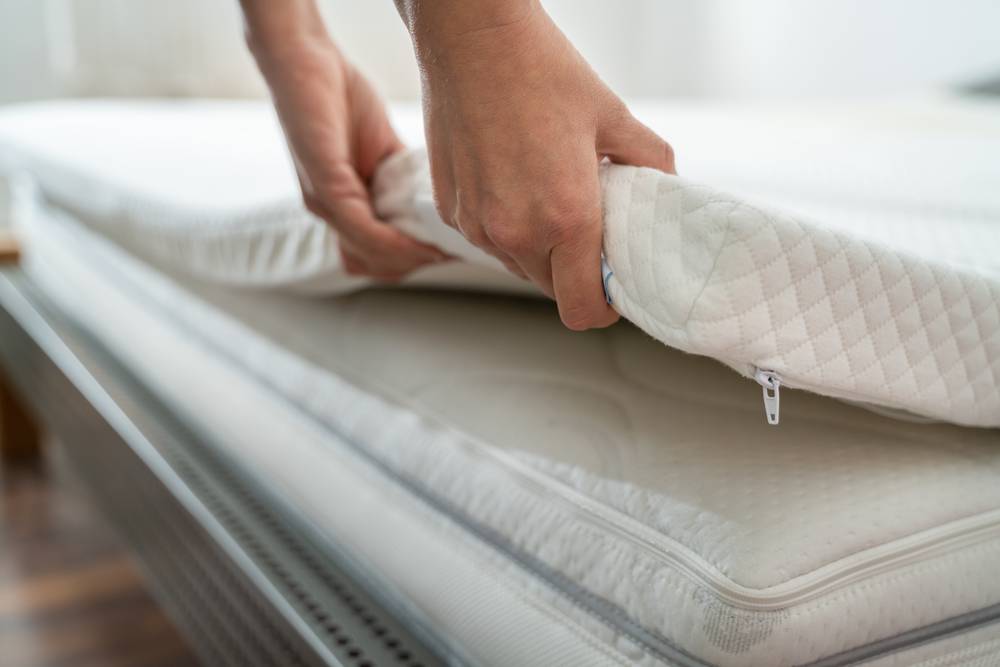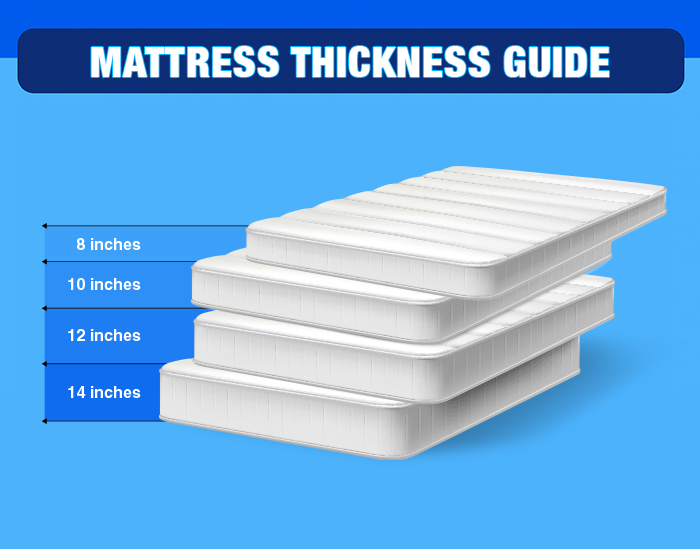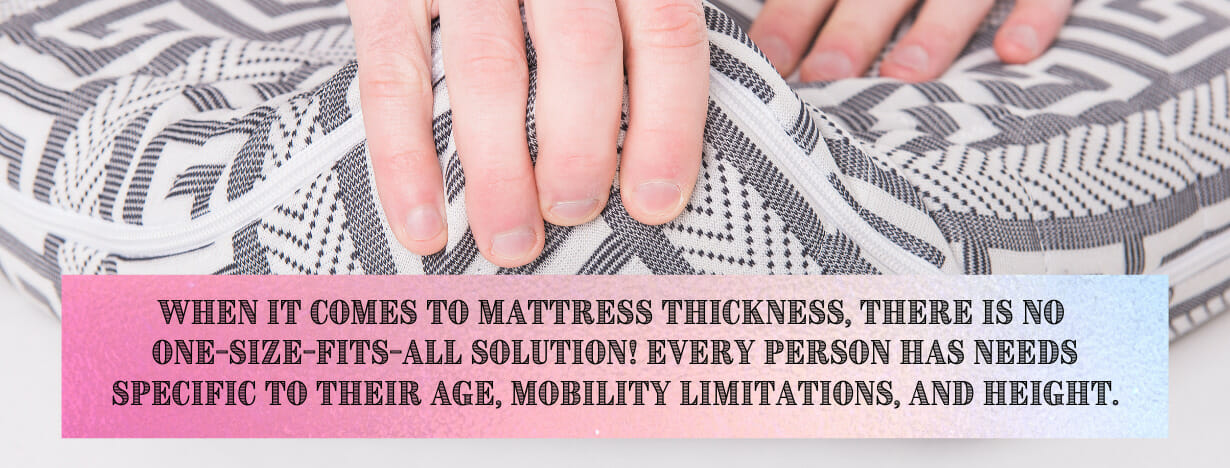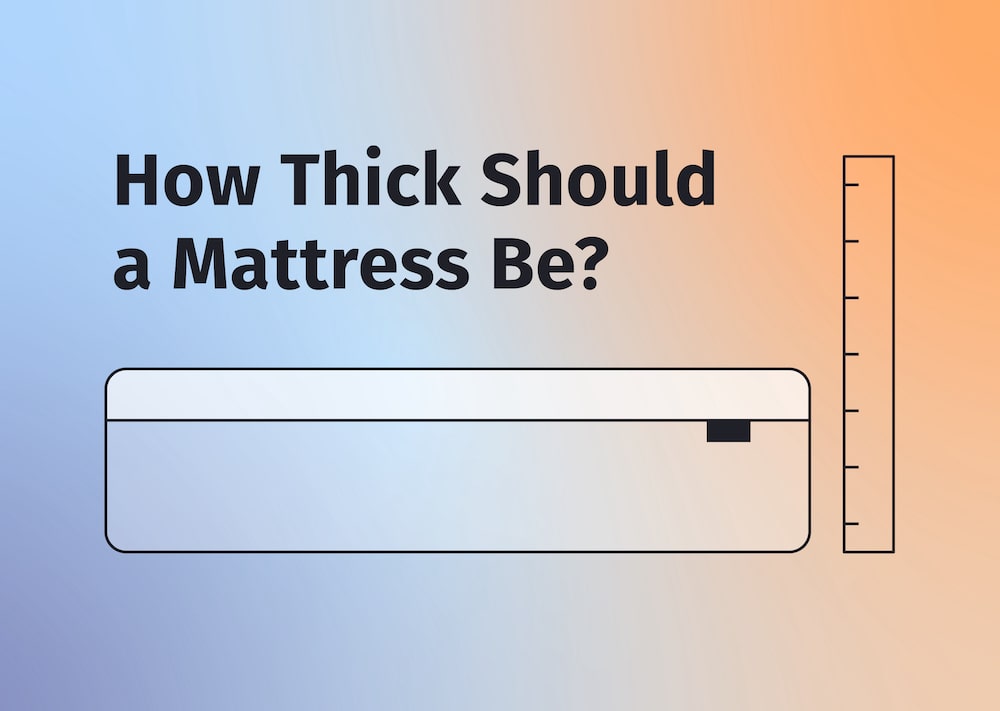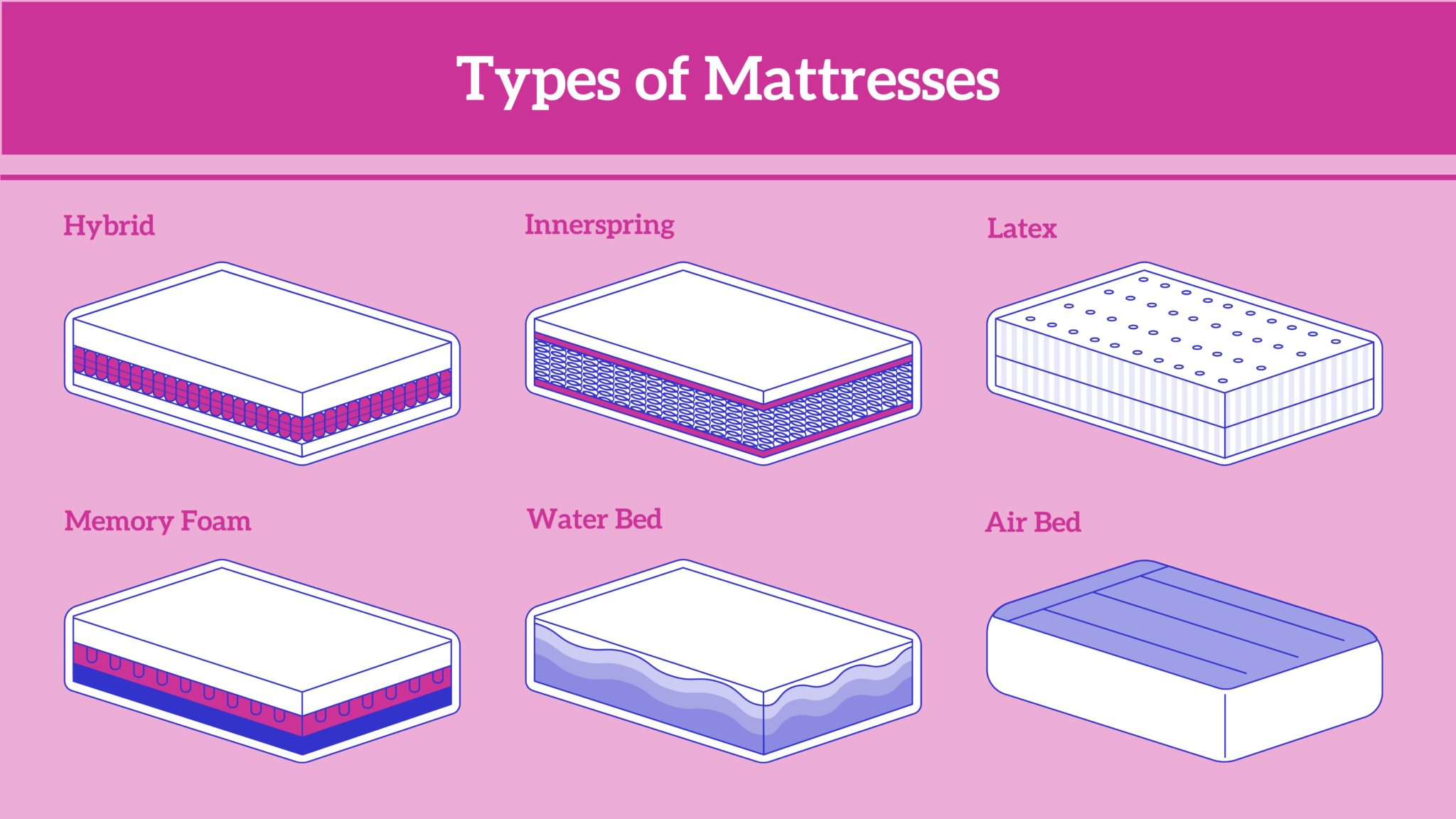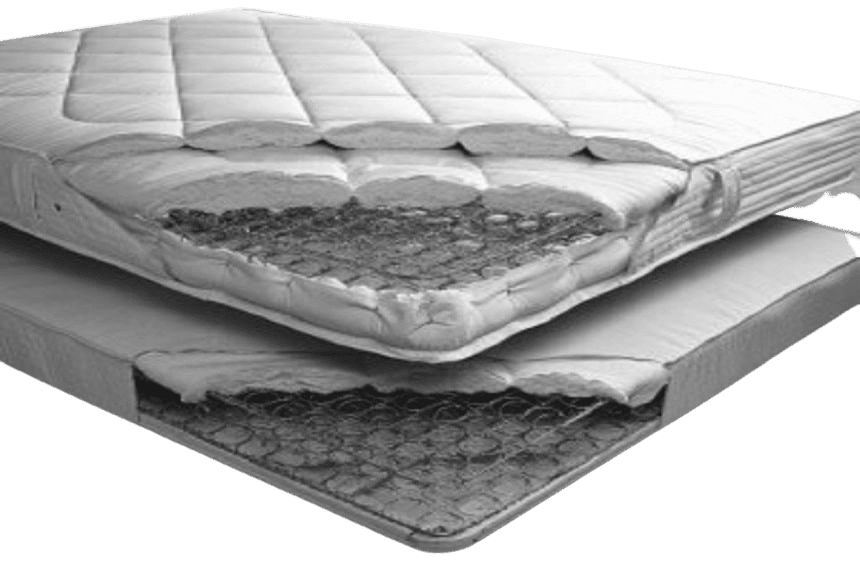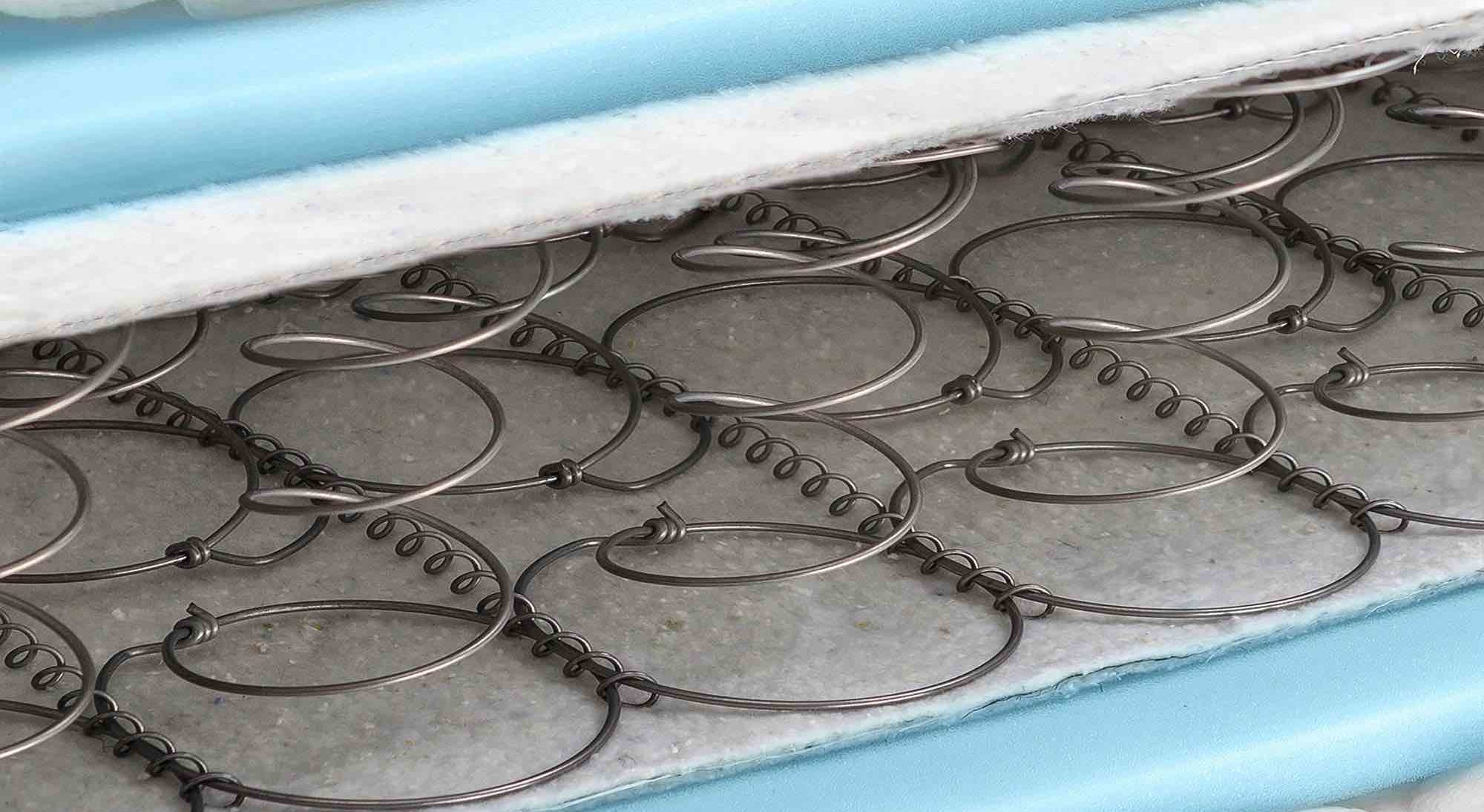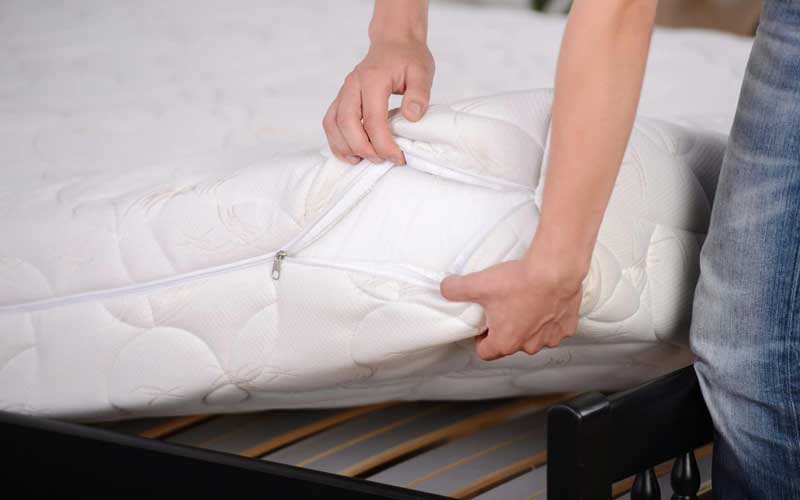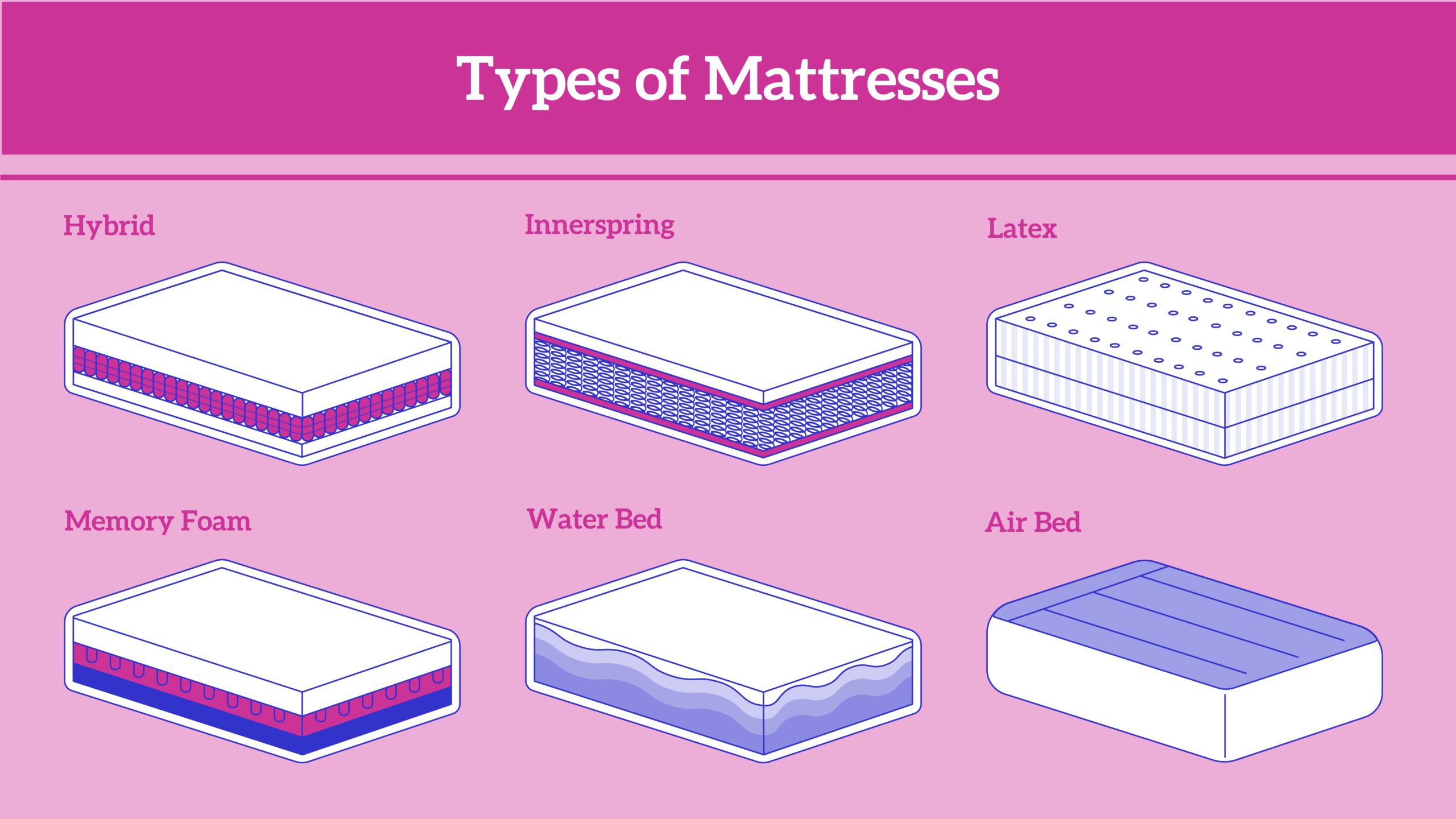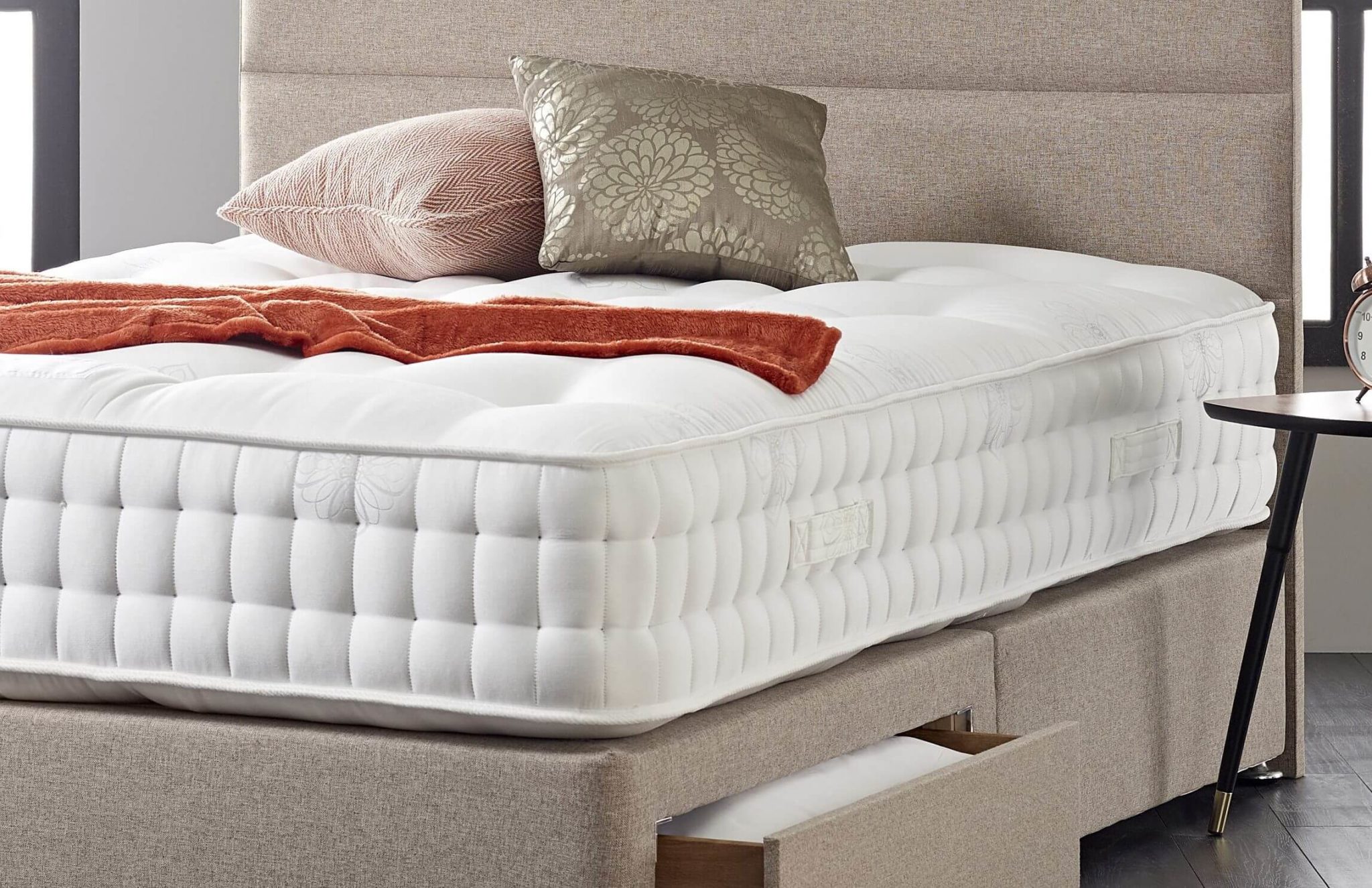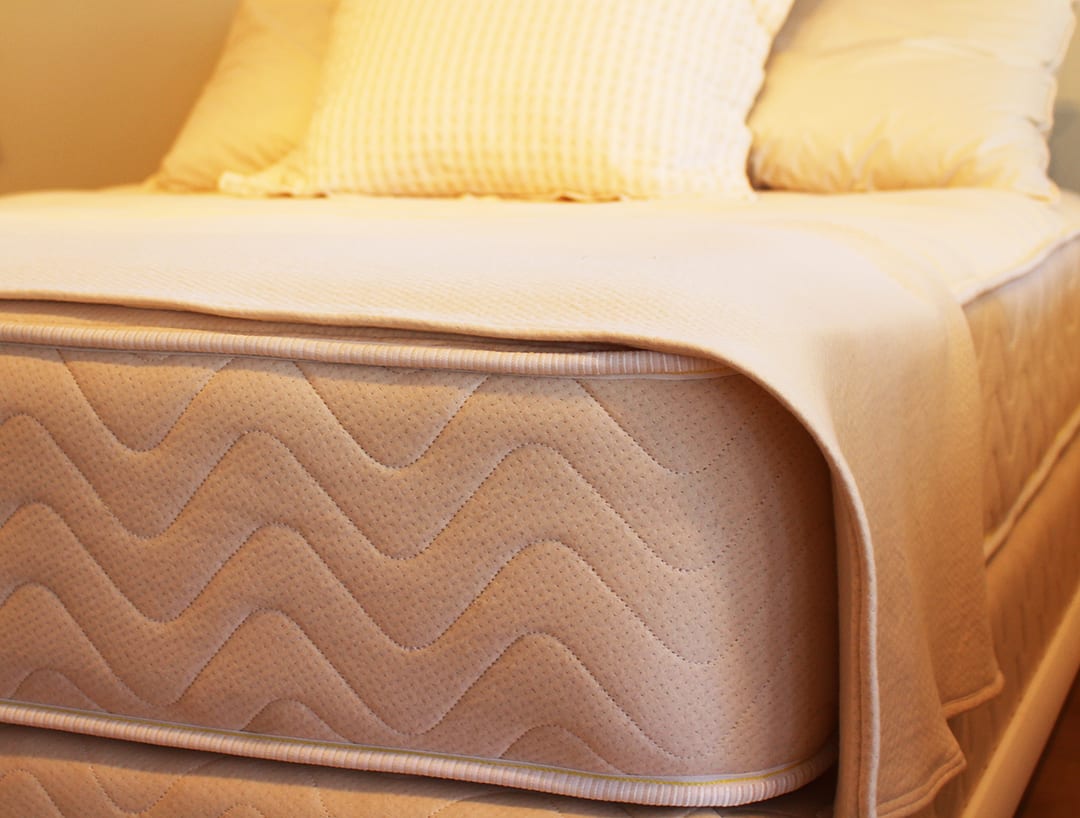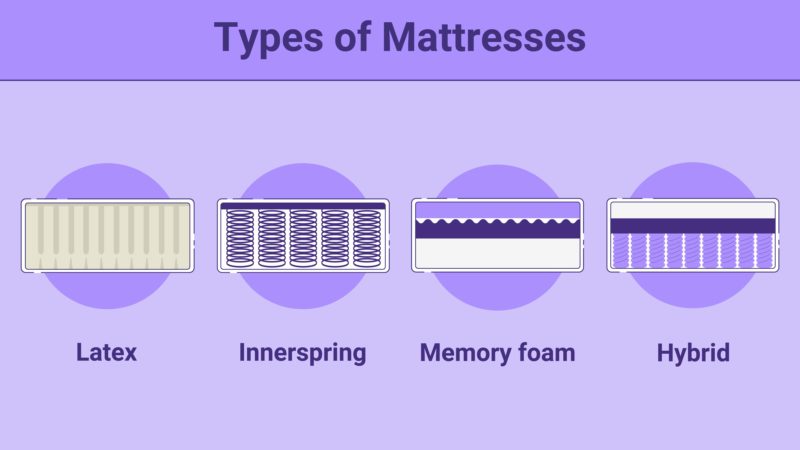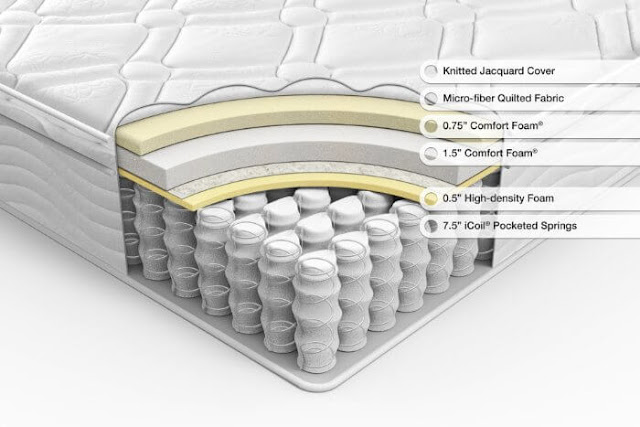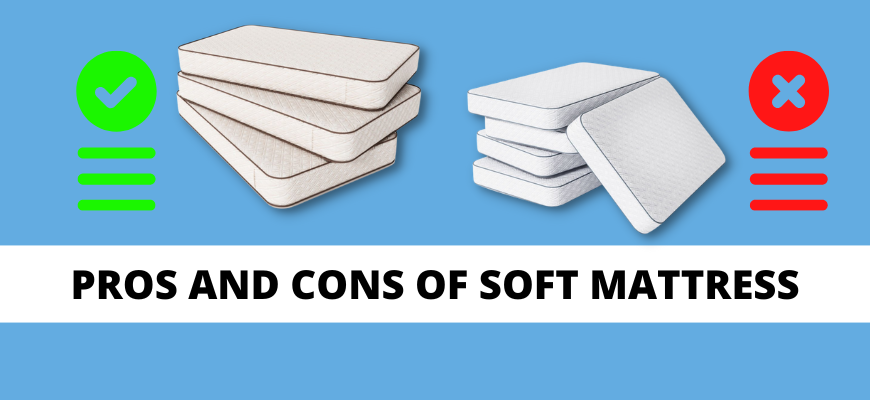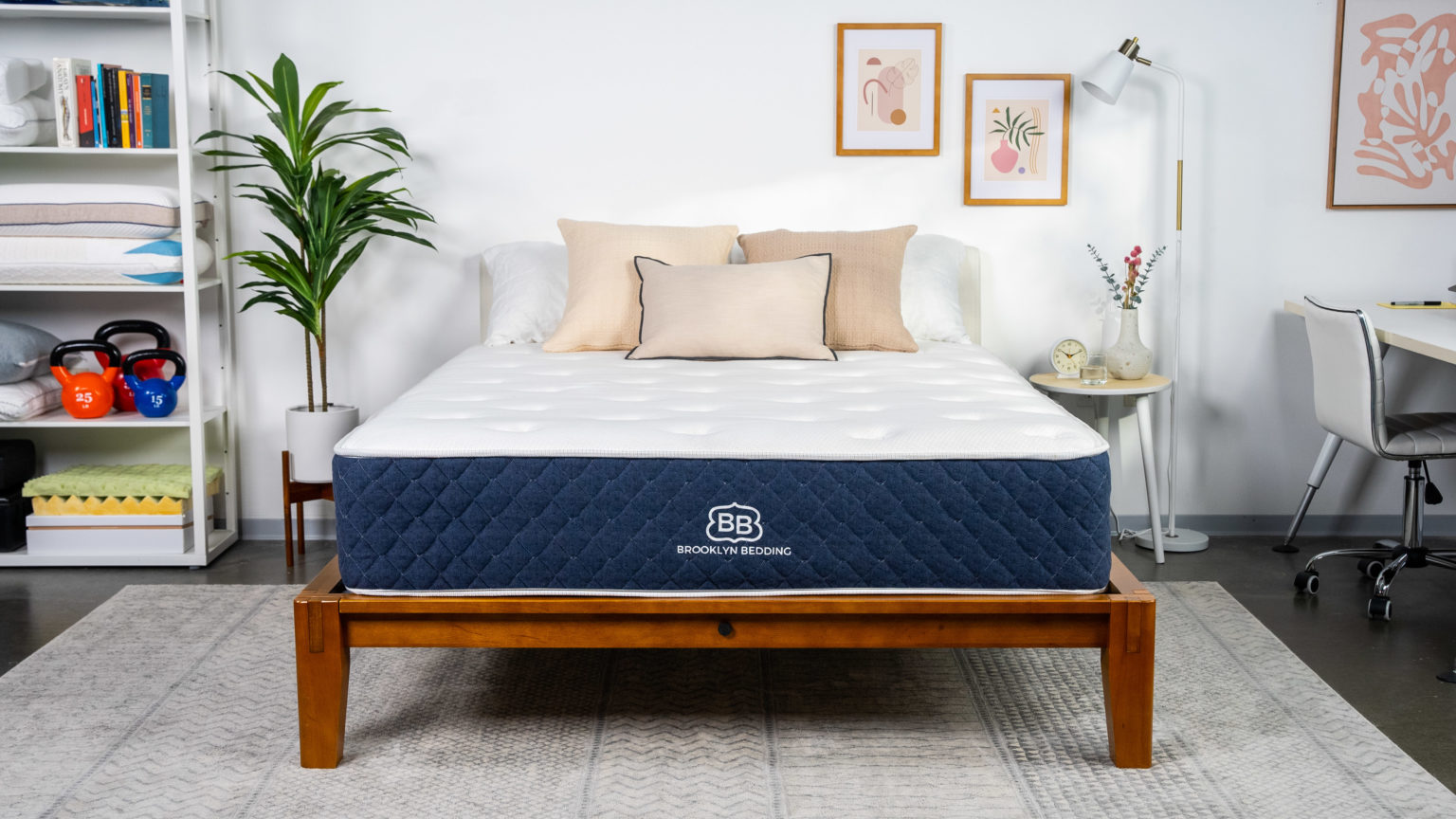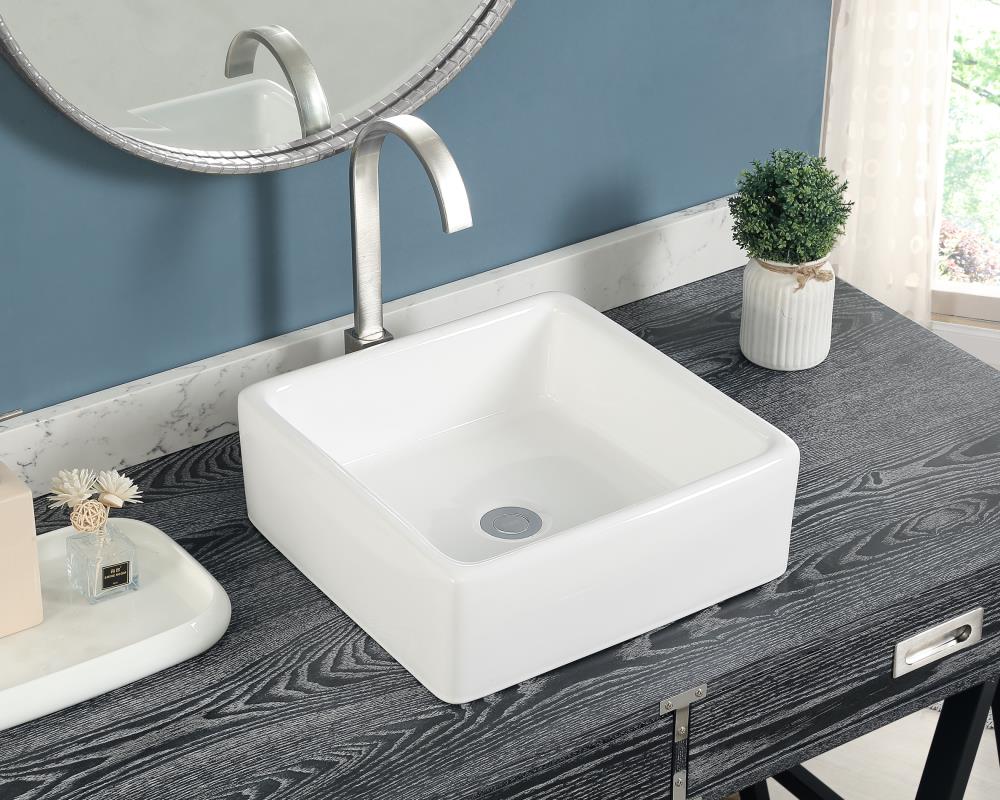When it comes to purchasing a new mattress, thickness is an important factor to consider. A mattress that is too thick or too thin can greatly affect your sleeping experience and overall comfort. This is especially true for spring mattresses, which are known for their support and durability. In this guide, we will explore the ins and outs of spring mattress thickness and help you determine the ideal thickness for your sleeping needs.Understanding Mattress Thickness: A Guide to Spring Mattress Thickness
The average spring mattress thickness ranges from 8 to 12 inches, but there are also options available that are as thin as 6 inches or as thick as 14 inches. So how do you know which thickness is right for you? It ultimately depends on your personal preferences and sleeping habits. If you are a side sleeper, a thicker mattress may be more beneficial as it provides more cushioning for your shoulders and hips. Back sleepers may prefer a medium thickness mattress to provide the right balance of support and comfort. Stomach sleepers, on the other hand, may benefit from a thinner mattress to keep their spine aligned. Additionally, your body weight can also play a role in determining the ideal thickness. Heavier individuals may need a thicker mattress for proper support, while lighter individuals may find a thinner mattress more comfortable.Spring Mattress Thickness Guide: How Thick Should Your Mattress Be?
When shopping for a spring mattress, it is important to consider your sleeping position, body weight, and personal preferences. Here are some factors to keep in mind when determining the right thickness for your mattress: Support: A thicker mattress does not always equal better support. The number of coils and their quality are more important factors in providing support. Make sure to also consider the thickness of the comfort layers, as they can affect how well the mattress supports your body. Comfort: Thicker mattresses tend to provide more cushioning and pressure relief, which can be beneficial for those with joint pain or pressure points. However, a thicker mattress may also feel too soft for some individuals, so it is important to find the right balance of support and comfort. Mattress Type: The type of spring mattress you choose can also affect the ideal thickness. For example, a pocket spring mattress may feel more supportive and comfortable at a thinner thickness, while an open coil spring mattress may require a thicker thickness for proper support. Bed Base: The type of bed base you have can also play a role in mattress thickness. If you have a slatted bed base, you may need a thicker mattress for proper support, whereas a solid base may require a thinner mattress.Choosing the Right Thickness for Your Spring Mattress: A Comprehensive Guide
Now that you have a better understanding of how thickness can affect your mattress, let's delve into the different types of spring mattress thicknesses and their features: 6-8 inches: These are the thinnest options available and are typically found in budget-friendly mattresses. They are best suited for children or guest rooms where the mattress is not used frequently. 8-10 inches: This is the average thickness for spring mattresses and is suitable for most individuals. It provides a good balance of support and comfort and is a popular choice for those on a budget. 10-12 inches: These mattresses are considered on the thicker side and are ideal for those who require more cushioning and support. They are also a good choice for heavier individuals as they can provide better support for their body weight. Above 12 inches: These are the thickest options available and are often found in luxury mattresses. They provide the most cushioning and are best suited for those who prefer a plush and luxurious feel.Spring Mattress Thickness Explained: What You Need to Know
Aside from comfort and support, the thickness of your spring mattress can also affect other factors such as durability, temperature regulation, and motion isolation. Durability: A thicker mattress may last longer as it has more layers to withstand wear and tear. However, this also depends on the quality of materials used and how well the mattress is cared for. Temperature Regulation: A thicker mattress may retain more heat, making it uncomfortable for hot sleepers. If you tend to sleep hot, opt for a thinner mattress or choose a model with cooling features. Motion Isolation: Thicker mattresses tend to have better motion isolation, meaning you are less likely to feel your partner's movements throughout the night. This can be beneficial for couples or individuals who are easily disturbed by movement.The Importance of Spring Mattress Thickness: A Complete Guide
Now that you have a better understanding of the factors that can affect spring mattress thickness, here is a step-by-step guide to help you determine the ideal thickness for your needs: Step 1: Consider your sleeping position and personal preferences. Step 2: Determine your body weight and any specific needs, such as joint pain or pressure points. Step 3: Research different types of spring mattresses and their features. Step 4: Test out different thickness options in-store or read customer reviews to see how others with similar needs and preferences have found their mattress. Step 5: Consider any other factors that may affect the ideal thickness, such as your bed base and the climate you live in.How to Determine the Ideal Thickness for Your Spring Mattress: A Step-by-Step Guide
The standard thickness for a spring mattress is around 8-10 inches, but as we've discussed, there are many factors that can affect the ideal thickness for your personal needs. It is important to consider these factors and not solely rely on the standard thickness when purchasing a spring mattress. Choosing the right thickness for your mattress can greatly affect your overall sleep quality and comfort. By taking into account your personal preferences, sleeping habits, and other factors, you can determine the ideal thickness for your spring mattress and ensure a better night's rest.Spring Mattress Thickness: What's the Standard and Why Does it Matter?
When shopping for a spring mattress, you may come across various thickness options and wonder which one is right for you. This buyer's guide will help you understand the different thickness options and their features, making it easier for you to make an informed decision: Thin (6-8 inches): These mattresses are best for children or guest rooms and may not provide enough support for everyday use. Medium (8-10 inches): This is the standard thickness for spring mattresses and is suitable for most individuals. Thick (10-12 inches): These mattresses provide more cushioning and support and are a good choice for heavier individuals or those with specific needs. Extra Thick (above 12 inches): These mattresses are considered luxury options and provide the most cushioning and support. They are best suited for those who prefer a plush and luxurious feel.Understanding the Different Thickness Options for Spring Mattresses: A Buyer's Guide
Ultimately, the perfect spring mattress thickness will vary from person to person. By considering your specific needs and preferences, you can determine the ideal thickness for your mattress and ensure a better and more comfortable sleep experience. If you are unsure about which thickness to choose, consult with a mattress specialist or try out different options in-store to find the best fit for you.Spring Mattress Thickness: Finding the Perfect Fit for Your Sleeping Needs
Before making a purchase, it is important to weigh the pros and cons of different spring mattress thickness options. Here is a quick comparison to help you make an informed decision: Thin (6-8 inches): Pros: Budget-friendly, easy to move or store. Cons: May not provide enough support or comfort. Medium (8-10 inches): Pros: Suitable for most individuals, good balance of support and comfort. Cons: May not be thick enough for some individuals. Thick (10-12 inches): Pros: Provides more cushioning and support, suitable for heavier individuals. Cons: May feel too soft for some, can be more expensive. Extra Thick (above 12 inches): Pros: Luxurious feel, provides maximum support and cushioning. Cons: May be too thick and soft for some, can be more expensive. Now that you have a better understanding of spring mattress thickness, you can make a more informed decision when purchasing your next mattress. Remember to consider your personal needs and preferences, and take the time to test out different options to find the perfect fit for your sleeping needs.The Pros and Cons of Different Spring Mattress Thicknesses: A Comprehensive Comparison
The Importance of Choosing the Right Spring Mattress Thickness for Optimal Comfort
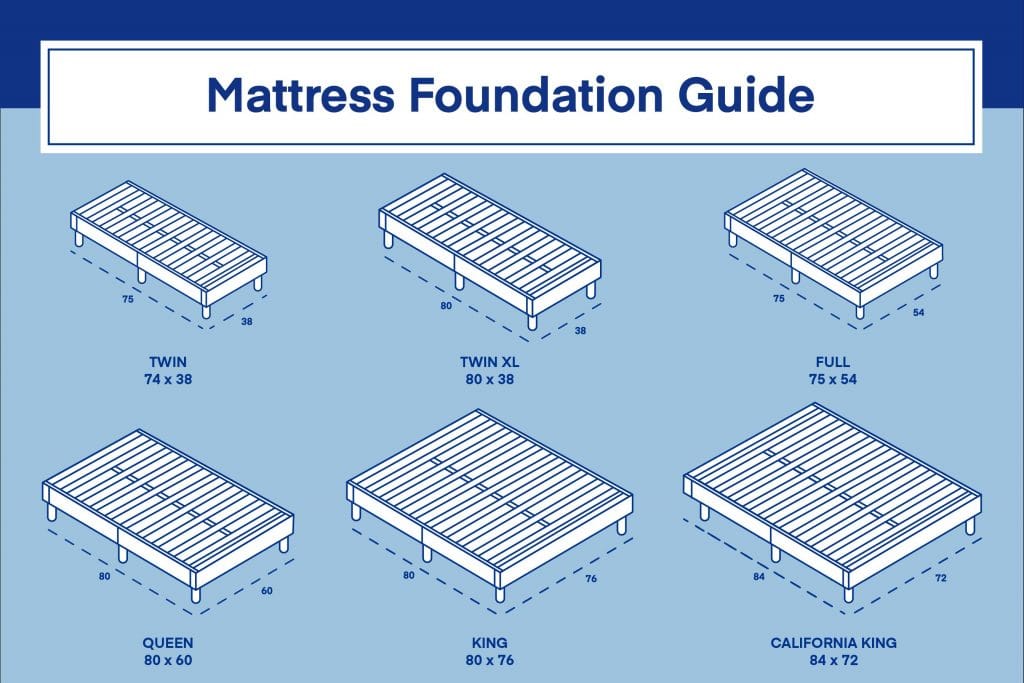
Factors to Consider When Choosing the Thickness of Your Spring Mattress
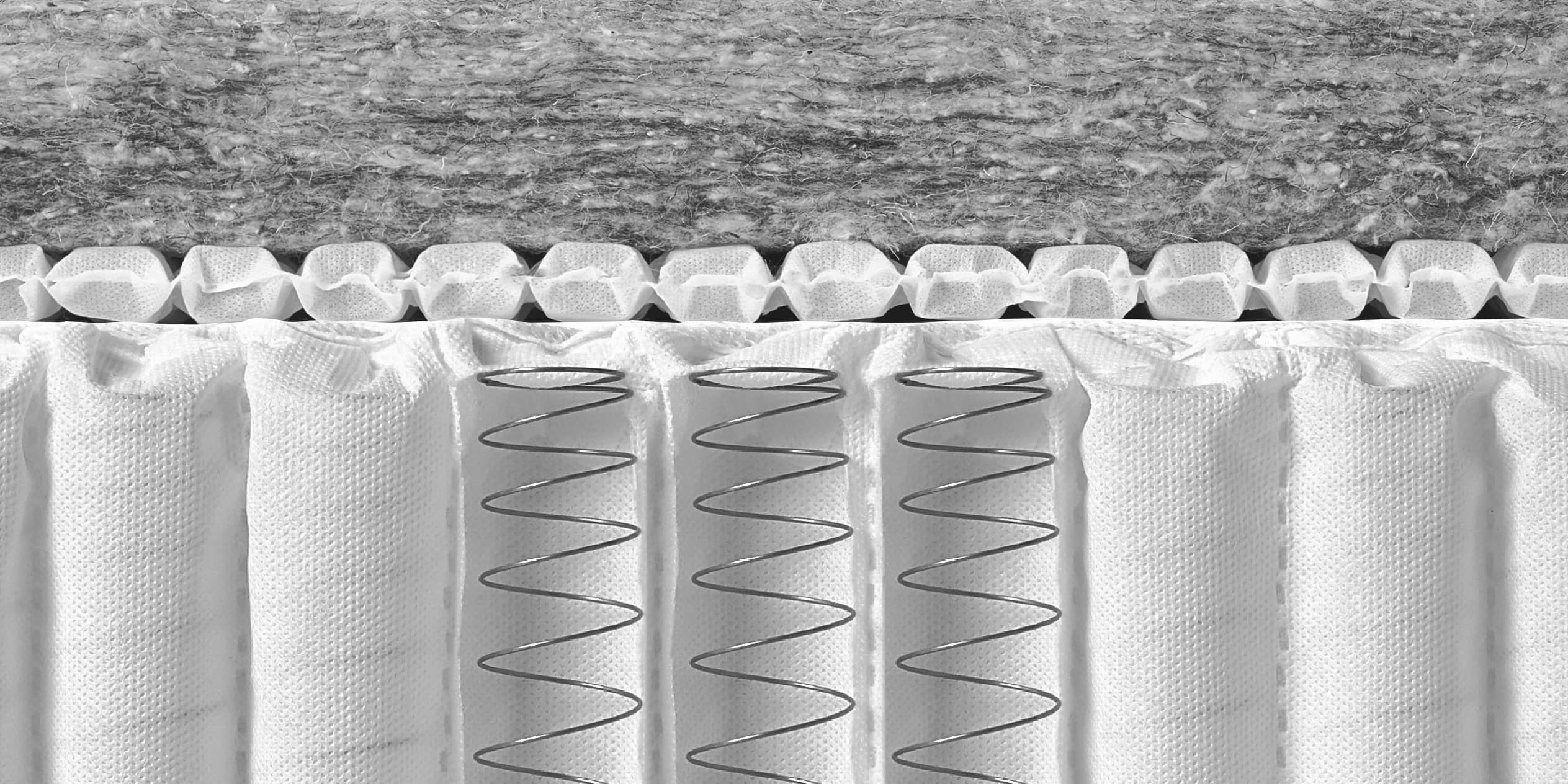 When it comes to creating the perfect bedroom, choosing the right
spring mattress
is crucial. Not only does it affect the overall aesthetic of the room, but it also plays a significant role in the quality of your sleep. With so many options available in the market, it can be overwhelming to decide on the right
mattress thickness
for your needs. However, one factor that should not be overlooked is your body weight.
Spring mattresses
come in various thicknesses, typically ranging from 6 to 14 inches. While a thicker mattress may seem more luxurious, it may not necessarily be the best fit for you. For those who are on the lighter side, a thinner
spring mattress
may provide enough support and comfort. On the other hand, those with a heavier body weight may need a thicker
mattress
to prevent sinking and provide proper support for their body.
Aside from your weight, another important factor to consider is your sleeping position. If you are a side sleeper, a thicker
spring mattress
may be more comfortable as it can provide more cushioning for your shoulders and hips. Meanwhile, back and stomach sleepers may prefer a thinner
mattress
for better spinal alignment.
When it comes to creating the perfect bedroom, choosing the right
spring mattress
is crucial. Not only does it affect the overall aesthetic of the room, but it also plays a significant role in the quality of your sleep. With so many options available in the market, it can be overwhelming to decide on the right
mattress thickness
for your needs. However, one factor that should not be overlooked is your body weight.
Spring mattresses
come in various thicknesses, typically ranging from 6 to 14 inches. While a thicker mattress may seem more luxurious, it may not necessarily be the best fit for you. For those who are on the lighter side, a thinner
spring mattress
may provide enough support and comfort. On the other hand, those with a heavier body weight may need a thicker
mattress
to prevent sinking and provide proper support for their body.
Aside from your weight, another important factor to consider is your sleeping position. If you are a side sleeper, a thicker
spring mattress
may be more comfortable as it can provide more cushioning for your shoulders and hips. Meanwhile, back and stomach sleepers may prefer a thinner
mattress
for better spinal alignment.
The Benefits of Choosing the Right Spring Mattress Thickness
 Choosing the right
spring mattress thickness
can have a significant impact on the quality of your sleep. A mattress that is too thick or too thin can lead to discomfort and pain, resulting in a restless night's sleep. On the other hand, a properly sized
mattress
can provide the right amount of support and comfort for your body, allowing you to wake up feeling well-rested and rejuvenated.
Moreover, choosing the right
mattress thickness
can also prolong the lifespan of your mattress. A mattress that is too thin may wear out faster, while a mattress that is too thick may not provide enough support, leading to premature sagging.
In conclusion, the
thickness of your spring mattress
is an essential factor to consider when designing your bedroom. It can affect your sleep quality, comfort, and the longevity of your mattress. Take the time to evaluate your body weight and sleeping position to determine the right
mattress thickness
for you. Investing in the right
spring mattress
will not only enhance the aesthetics of your room but also improve your overall well-being.
Choosing the right
spring mattress thickness
can have a significant impact on the quality of your sleep. A mattress that is too thick or too thin can lead to discomfort and pain, resulting in a restless night's sleep. On the other hand, a properly sized
mattress
can provide the right amount of support and comfort for your body, allowing you to wake up feeling well-rested and rejuvenated.
Moreover, choosing the right
mattress thickness
can also prolong the lifespan of your mattress. A mattress that is too thin may wear out faster, while a mattress that is too thick may not provide enough support, leading to premature sagging.
In conclusion, the
thickness of your spring mattress
is an essential factor to consider when designing your bedroom. It can affect your sleep quality, comfort, and the longevity of your mattress. Take the time to evaluate your body weight and sleeping position to determine the right
mattress thickness
for you. Investing in the right
spring mattress
will not only enhance the aesthetics of your room but also improve your overall well-being.
